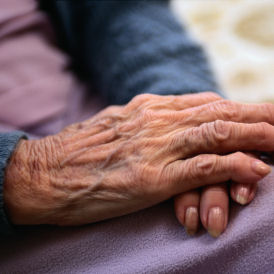Dementia patients ‘ignored’ by hospital staff
Hospitals need to “significantly improve” the way they deliver care to people with dementia by improving communication and personal care, according to a new report.

The Royal College of Psychiatrists’ audit of 210 hospitals – the first of its kind – said services have good policies in place to lessen the distress caused to patients, but these are not always followed.
The study said the encounter between staff and patients “is mainly task-related and delivered in a largely impersonal manner” while the hospital environment is “often impersonal”.
Staff do not always greet or talk to patients during care, explaining what they are doing or offering choice. Sometimes they do not respond to patient requests for help.
NHS guidance says the use of antipsychotics to control very distressed or angry patients should be used as a last resort, but many hospitals are using them too frequently, the report said.
‘Not sufficient’
The report found 28 per cent of people with dementia received antipsychotic medication in the hospital, of which 12 per cent were newly prescribed the drugs while in there.
The reasons for these prescriptions were not recorded in 18 per cent of these cases, while less than half of staff felt properly trained in dealing with challenging behaviour.
Royal College of Nursing (RCN) Chief Executive Dr Peter Carter said: “It is extremely worrying that two-thirds of staff found that their training and development was not sufficient.
“It is essential that all staff are supported through training, education and leadership so that they are able to provide skilled, knowledgeable care to people with dementia.
“Equally, each nurse is personally accountable for their own practice and must act promptly to raise concerns if staffing levels or other pressures are getting in the way of delivering good care.”




